Henry Hoots, my 5x great grandfather, was born about 1827 in McMinn County, Tennessee. McMinn County is northeast of Chattanooga southwest of Knoxville. He was the third son of David and Hannah (Welch) Hoots’ 14 children. David was a farmer, born in Deep Creek, Surry County, North Carolina in 1804, raised mostly in Cumberland county Kentucky. His father, Peter Hoots, my 6x great grandfather, had moved to Morgan County Illinois in 1827. His father, Jacob Andrae (Hutts) Hoots Sr., my 7x great grandfather was awarded several hundred acres of land for his service in the Revolutionary War (a story for another time). The 750 acres of land was split amongst his surviving sons, and Peter sold his share before moving. So the Hoots family were land owners going back to the founding of this country. They are of German descent, coming to America in 1743. All of which makes Henry’s story all the more sorry.
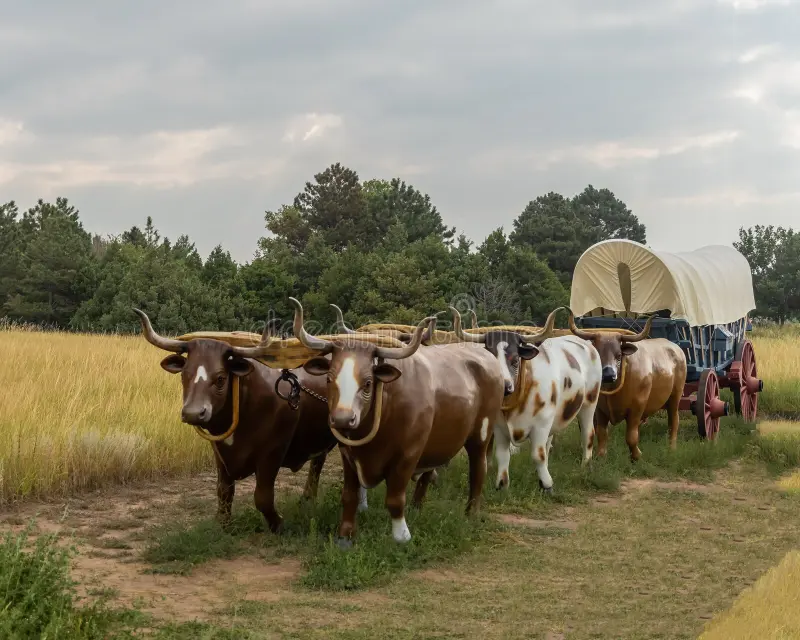
David and Hannah and their 3 small boys “in 1829, came to Illinois in a wagon drawn by a yoke of oxen, the usual mode of transportation at that early day. Incoming to Illinois they located in Scott county, on Indian creek. There the parents of John [Henry’s brother] resided until their death, the father dying March 31, 1871, aged 66 years, and the mother June 6, 1859, aged 55 years…Coming to Illinois, as they did, in 1829, the family were here to endure the hardships of the deep snow, which followed so soon after their arrival in Scott county. John was reared mostly in Scott county, and he remembers well the first time he saw the site of the town of Winchester, there being only one log house where the town now stands, and there he has often hunted squirrel, and also killed rattlesnakes.” –History of Greene county, Illinois: its past and present
And so Henry was raised in Scott County before it was formally Scott county – in 1830 it would have been part of Morgan county, becoming Scott county in 1839. For context, the State was established just 12 years before and Chicago wasn’t incorporated until 1833. In 1833, in the newly developing city of Winchester, Stephen Douglass found a job as a clerk in an estate sale and as a school teacher. (This was 27 years before he lost his presidential race to Abraham Lincoln). He and his 14 siblings worked mostly in agriculture. The census tells us adult Henry couldn’t read or write, but his younger siblings, after 1850 did attend school.
In 1849, 22 year old Henry married eighteen year old Clarissa Jane Wishon, her second marriage. Two months after their wedding his first daughter, Margaret, was born. In the next fifteen years, by 1864, the pair had ten more children, 7 boys and 3 girls, including my 3x great grandfather, Edwin A Hoots. Henry was farming in Scott county, but listed the town of Alsey (Township 13) as his residence by 1860. His mother, Hannah, died in 1859 and by 1862 his father, David, had remarried and his new wife, who was the same age as Henry, delivered their first child, giving Henry a half sibling the same age as his own child.
In 1867, Clarissa divorced Henry, citing alcoholism and womanizing as the reasons. Henry married Minta Woods who gave him a daughter, Daisy, in 1875. Then he married Elizabeth Herron who gave him a son in 1879. Now living in Greene County in 1880, he is still working as a farmer and supporting his two new children along with 3 step children. In 1894 at 67 he married Emily Marshal. None of these marriages lasted, presumably because of his alcoholism.
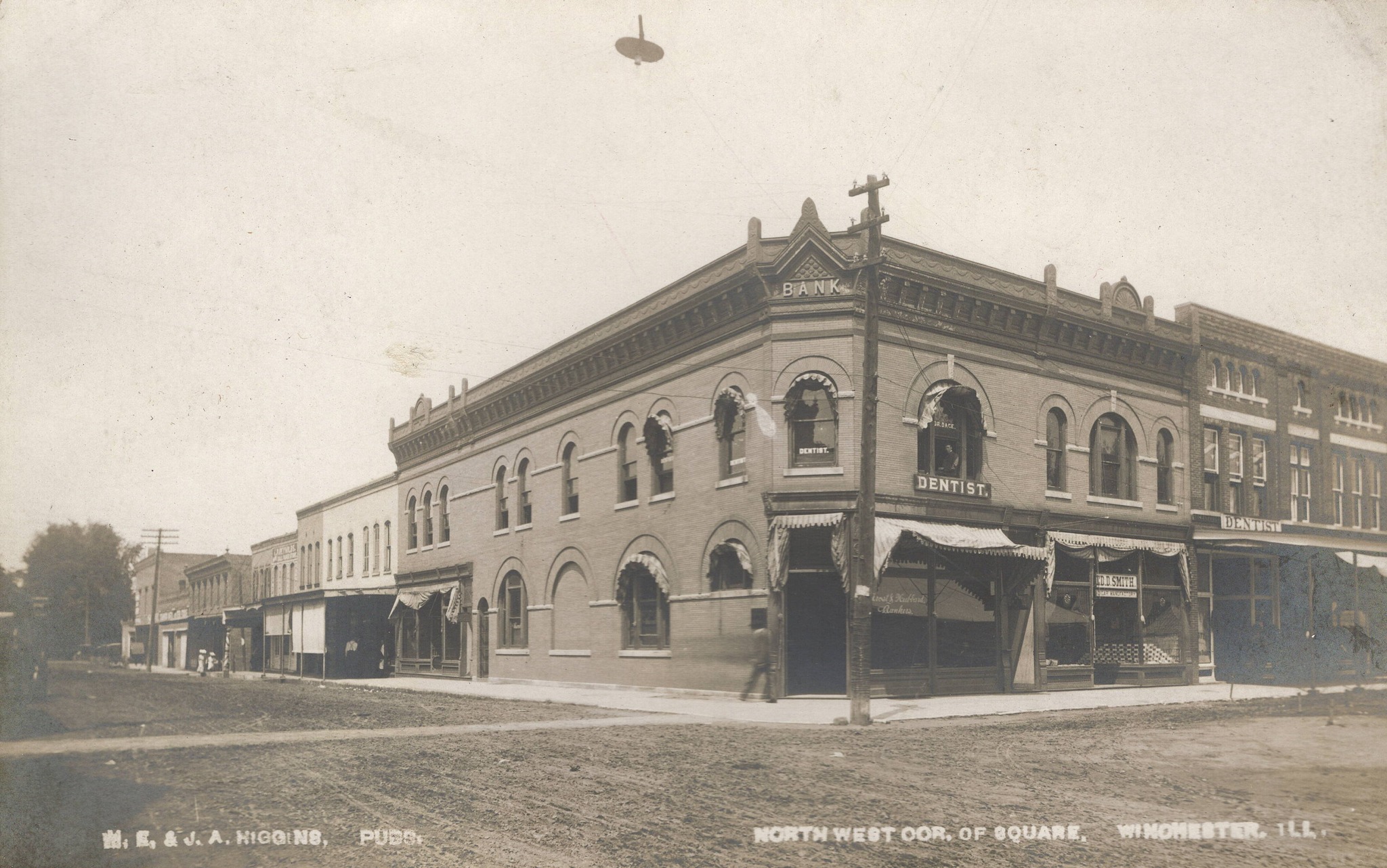
At 71 years of age, in 1898 Henry had become an inmate at the Scott County Poor Farm.
In 1880 this is the report of how the Scott County Almshouse operated:
Scott.—Scott county is not under township organization. The county farm is leased to a contractor, who pays four hundred dollars annual rent, and receives compensation for keeping paupers as follows: For young children, sick persons, insane and idiots, he is allowed thirty-five cents a day; for children over two years of age and under ten, thirteen cents; and for all other paupers, ten cents. The county furnishes clothing, furniture and medical care. Everything else is furnished at the cost of the contractor. The amount realized by him under this contract for the board of paupers during the last fiscal year was nine hundred and twenty-five dollars. The total pauper expenses of the county are about seventeen hundred, of which two hundred and forty is for outdoor relief. There has been no change in the buildings and furniture since our last report, but the appearance of the house has improved. The number of inmates present was seventeen, of whom three were insane, all of them men and none of them capable of labor. All three were in seclusion. The number of children was two, both born in the poorhouse and illegitimate. The salary of the county physician, who furnishes medicines, and visits the almshouse only, is one hundred and fifty dollars.
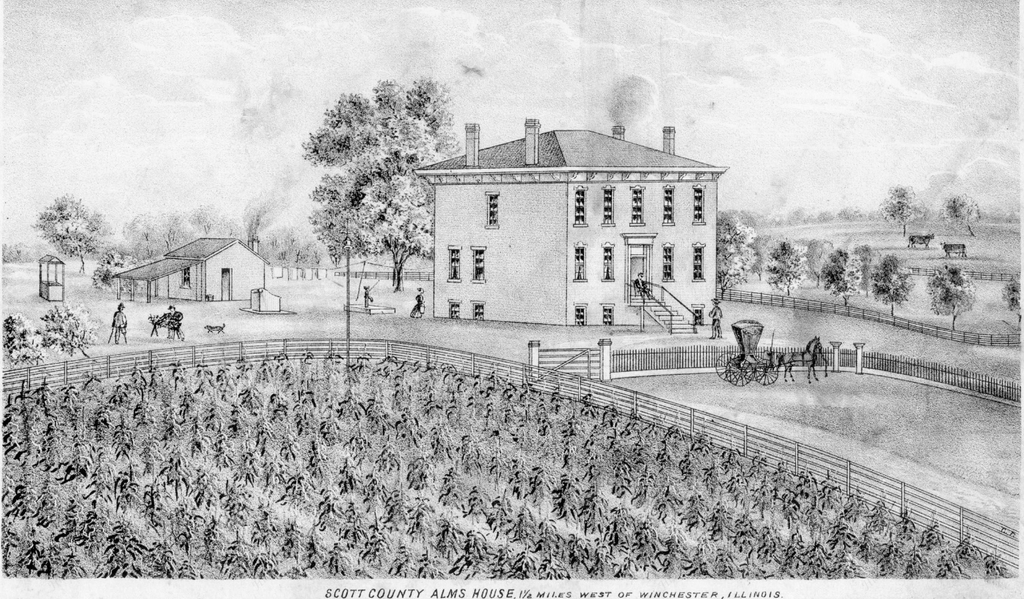
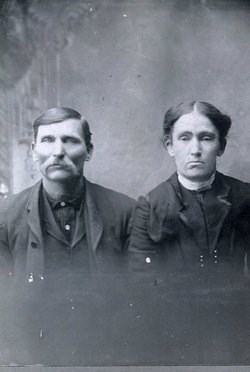
The contractor didn’t want to pay to support Henry because he knew his brother, Matthias was a wealthy businessman in the county, owning stakes in mines and the Alsey Brick and Tile Company plant as well as farmland. So the state of Illinois sued Matthias and Henry’s oldest son Levi for support of Henry. The Augusta Courier reported:
A striking illustration of destitution on one hand and inhumanity on the other was witnessed in Judge Mournings Court Tuesday afternoon. Henry Hoots, an old grey haired man, feeble and debilitated, was the central figure. He is an inmate of the county farm and his presence before the court was to invoke legal means to compel his brother, who is worth a good many thousand dollars ( 2 lines unreadable) to advance money necessary to his support and (1line unreadable) States Attorney Bottenberg brought suit in the name of the plaintiff to compel these relatives to assist their indigent brother and father a mere request not being sufficient to loose their purse strings. But according to the decree of the court they will now be compelled to contribute to the support of this old man who is now in the evening of life. On the witness stand Hoots swore he had never been addicted to bad habits of any kind and never wasted money, but being the father of a large family and never very strong he failed to lay by any money to keep him in his old age. When infirmities came upon him he sought refuge in the poor house but the county has plenty of charges who haven’t wealthy relatives. Hence the suit.
Judge Mourning decided that the plaintiffs brother, Mathias Hoots of Scott County should pay annually $160 to be applied to his support and the son Levi Hoots of Camden should pay for the same purpose $10 per year. These amounts to be paid monthly per decree of the court.”
Details of Henry’s death and burial are unknown. It can be assumed he was put into a pauper’s grave after his passing.
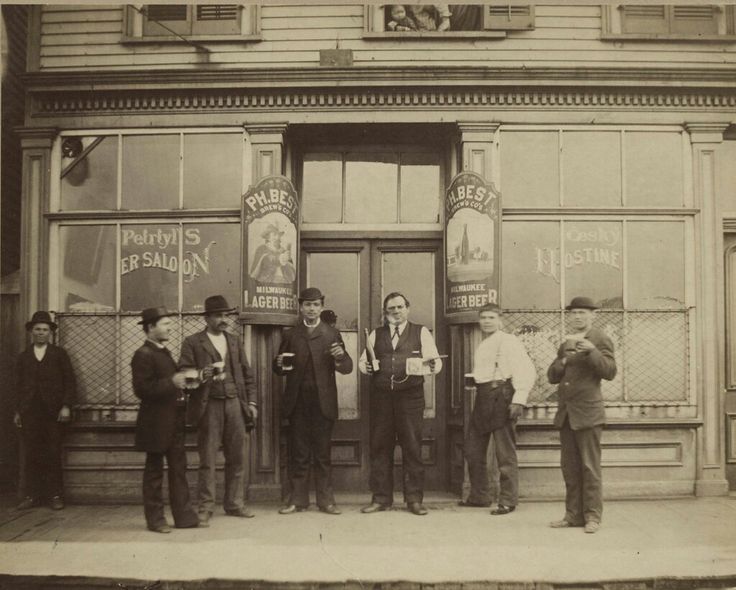
Leave a Reply